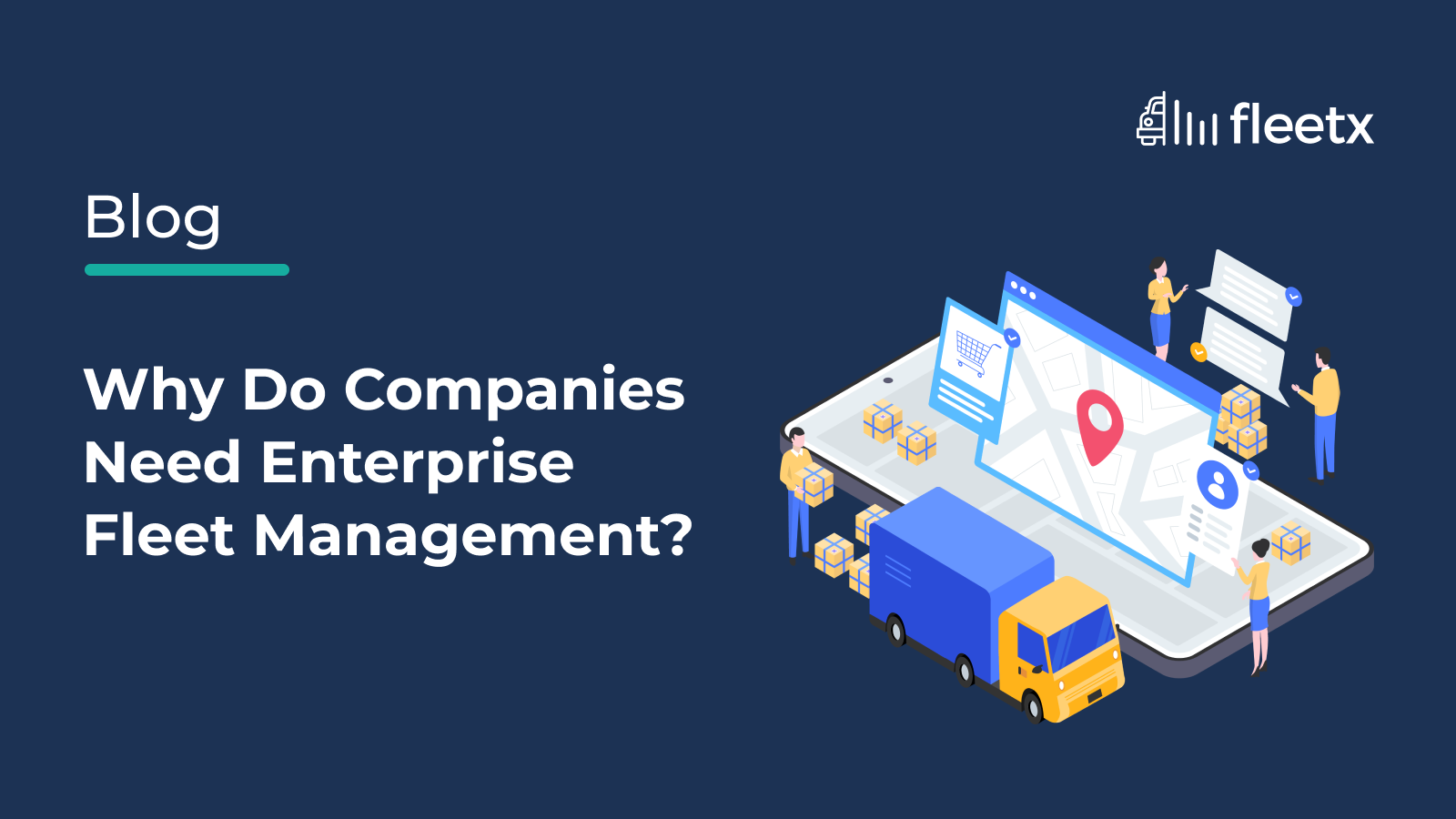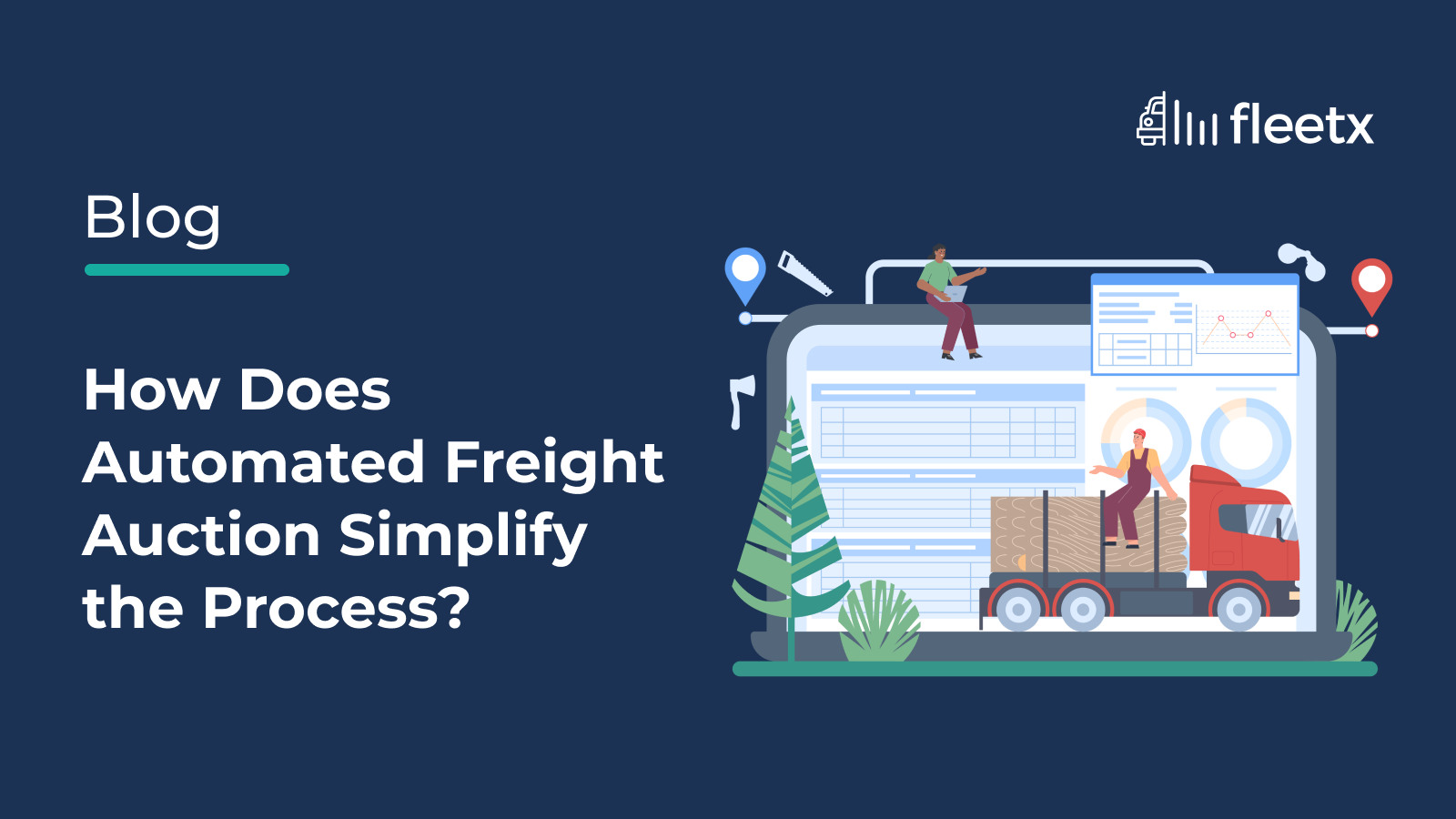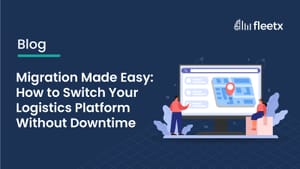
Finding it hard to manage the growing challenges in your fleet management operations?
In a highly connected world with constantly evolving demand patterns, sharper supply chain logistics is the only solution. In streamlining the transportation of goods and resources, the role of fleet management in enterprises is nothing short of critical.
Needless to say, any enterprise using commercial vehicles in its daily operations requires an efficient transportation management system to streamline the process.
Why is Fleet Management Critical in Logistics?
Fleet management comprises managing and coordinating inbound and outbound vehicles to enhance the operational efficiency and control costs. Earlier, the processes were coordinated manually, leading to several human errors and inefficiencies.
A modern fleet management system facilitates the functioning of a fleet manager by automating the processes that were earlier executed manually. Technology advancements have made the procedure of monitoring fleet operations much easier, facilitating the fleet manager in several functions, some of which are –
- Transportation management
- Route planning
- Load planning
Components of Fleet Management Software
Fleet management involves different aspects that work in perfect harmony.
Hardware
The equipment that enables vehicle data collection or ensures vehicle and cargo safety constitutes the hardware segment of an efficient fleet management system.
Software
Different cloud-based solutions provide crucial information related to vehicle tracking, driver behavior analysis, vehicle safety, and more. A distinct dashboard eases the job of a fleet manager with absolute visibility into the fleet operations.
Telematics
Using telematics, fleet managers gather information about vehicle braking patterns, speed levels, fuel consumption levels, and various other parameters to be informed about the maintenance and repair needs of the vehicle.
Role of Cloud-Based Solutions in Fleet Management
A logistics organization’s fleet management policy has to ensure the absolute removal of unproductive fleet operation practices. A cloud-driven software monitors and provides real-time updates regarding vehicles, drivers, inventory, and much more. Logistics operators can conveniently monitor their fleets in transit and take the necessary remedial measures to eliminate or streamline the problem areas. Cost-saving is the other major goal. The fundamental benefits of a robust cloud-led fleet management system include:
- Real-time visibility and supervision
- Predictive maintenance and minimized downtime
- Route planning
- Enhanced driver safety
- Driver behavior analysis
Significance of Enterprise Transport Management System in Logistics
Digital Management of Transporter Contracts
In the era of technology, manual processes are becoming obsolete. Transporter contracts being crucial for businesses, an enterprise transportation management system streamlines the process of management and maintenance of the contracts, eliminating the chances of human error.
Dispatch Planning
Shipment dispatch planning is a critical part of logistics. Accurate scheduling and timely deliveries go a long way in managing an effective transportation network.
Convenient Payment Dispute Resolution
With the data in place, several freight settlement issues can be resolved within a few clicks. Switching from manual to automated makes it easier.
Efficient Invoice Management
Enabled with automation, vendor invoices can be generated and tracked easily, ensuring ready availability during audits.
Features of Fleetx’s Enterprise Fleet Management System Enhancing Logistics Efficiency
Features of Fleetx’s Enterprise Fleet Management System Enhancing Logistics Efficiency
The cutting-edge transportation management system from Fleetx is transforming logistics operations, one transporter at a time. This dynamic software supports an organization to plan, execute, monitor, and evolve while keeping the costs under control. The system includes:
Spot Auction
Optimizing costs through the selection of the most economical rates from a pool of transporters is a fundamental feature of the software. The real-time bidding process can be availed over WhatsApp along with the web feature, enhancing accessibility from almost anywhere.
Load Builder
The 3D load builder ensures maximum space utilization and optimum cargo distribution in the vehicle, minimizing transport costs. The system makes use of intelligent algorithms to optimize routes for efficient fuel usage and promote environment-friendly practices.
Dispatch Planner
To ensure reliable supply chain performance, the dispatch planner assigns resources and optimizes routes for time-bound deliveries.
Freight Audit and Payment
Automated billing processes guarantee accurate freight audit and payment, minimizing the possibility of discrepancies and securing an accurate financial management process.
RFQ Management
This feature optimizes the transportation procurement process and secures ideal pricing by enabling effective communication with several carriers.
Multi-Channel Integration for Swift Decision-Making
Diverse channels can be effortlessly integrated to generate a unified logistics management experience. Achieve better visibility and control across the complete supply chain.
Defining the Future of Transportation Management
The supply chain disruptions during COVID have made it essential for businesses to invest in a dynamic enterprise fleet management system that can be accessed easily in real-time. Selecting a software that integrates seamlessly with your existing systems and gives you all the benefits of a futuristic cloud-based system is the need of the hour.






